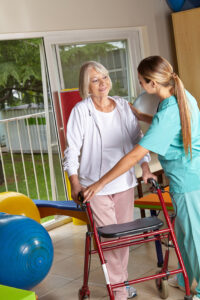Tailoring Post-Hospital Care for Senior Needs: A Guide to Personalized Recovery
A hospital stay can be scary for everyone, but it becomes even more upsetting for seniors, especially as they plan their return home. Personalized care becomes essential for the best recovery for seniors moving from the hospital to their homes, as every person has different obstacles to overcome. In this article, we discuss the value of providing seniors with the post-hospital care they need.
Recognizing Individual Needs

Post-Hospital Care: Personalized Recovery in Cascade, MI
A variety of health conditions, mobility issues, and personal preferences all have an impact on the post-hospital care needs of seniors. While some people might need help with wound care, physical therapy, or medication management, others could need aid with everyday living tasks like clothing, bathing, and meal preparation. Creating care plans that work requires an understanding of these unique demands.
Collaborative Care Planning
Coordinating the needs of seniors with loved ones and seniors themselves is the first step towards providing effective post-hospital care. Additionally, the medical team and any other caregivers should be involved to ensure no details are missed. The best care plan can be created by using thorough assessments and talking about the senior’s preferences and goals. To maintain care continuity, this plan should also specify precise interventions, deadlines, and roles.
What Services Will be Needed?
Services that are specifically tailored to meet the needs of seniors are also part of the process of customizing post-hospital care. This could involve physical or occupational therapy sessions for rehabilitation, home health aide support with personal care activities, and home nursing visits for medical monitoring. Furthermore, tailored services like dietary guidance, social work support, and transportation help can be added based on each client’s needs.
Adapting the Home Environment
To promote seniors’ recuperation and improve safety and comfort, the home environment must be changed. This could entail moving tripping hazards, adding grab bars to the bathroom, and changing furniture to make room for mobility aids. Moreover, mobility aids and shower chairs, elevated toilet seats, and other adaptive equipment can promote freedom and mobility inside the home.
Frequent Monitoring and Modification
Post-hospital care plans have to be flexible and dynamic in order to accommodate patients’ evolving demands. It is crucial to regularly assess the senior’s functional abilities, overall health, and level of satisfaction with their care in order to determine what modifications are required. To make sure the care plan stays efficient and adapts to the senior’s changing needs, this may entail regular evaluations by medical experts and continuous communication with caregivers.
Encouraging Independence and Well-Being
Encouraging seniors to retain their independence and quality of life is crucial, even while they receive individualized care. A sense of purpose and well-being during the rehabilitation process can be enhanced by supporting social involvement, encouraging autonomy in day-to-day activities, and encouraging decision-making participation. Including activities that complement the senior’s interests and pastimes can also improve their emotional and mental well-being.
To ensure the best possible healing, independence, and well-being for seniors, post-hospital care must be customized. Seniors can receive individualized support that improves their overall quality of life during the transition from hospital to home by comprehending their unique needs, working together on care planning, customizing services, modifying the home environment, and routinely monitoring and adjusting the care plan.
If you or someone you know needs help with Post-Hospital Care in Cascade MI, contact Gauthier Family Home Care. We provide quality and affordable home care services in our community. Call us at (616) 258-2300 for more information.
- Ensuring a Smooth Transition From Hospital to Home - June 4, 2025
- Caregiver of the Month – June 2025 - June 2, 2025
- Common Sense Summer Tips for Seniors to Help Them Beat the Heat - May 28, 2025

